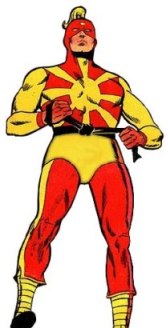Monday, February 23, 2015
Mustang Rally!
I doubt I'm alone when I sing the praises of the 1968 cop drama Bullitt. Steve McQueen in the title role of Frank Bullitt is endlessly fascinating and while the story sort of doesn't make complete sense when you evaluate it at the end, it has a grip which tightens relentlessly as the cool and cleverly made movie unfolds somberly before our eyes.
And "cool" seems to be the word of the day, as Frank is always under control and always seemingly in command. We get to see as the tension mounts that he is perhaps bubbling underneath with a mixture of anger and frustration at the violent world with which he grapples daily, but rarely does a glimmer of that leak out of the always resolute face which calmly interacts with person after person, almost always politely but with a firm hand.
Based on the novel Mute Witness by Robert L. Pike (which I've never read alas), the story here of organized crime trying to...ahem...police itself makes for a most ironic story. The movie talks a great deal of the distinction between the violent underworld inhabited by criminals and cops, and the rest of society where folks have dinner, listen to jazz, eat breakfast, and plot out humdrum architectural plans. Bullitt and his girlfriend Cathy (Jacqueline Bisset) come from different worlds and that clash helps shape the theme.
Opposite our "hero" Frank Bullitt is the positively oily politician Walter Chalmers played exquisitely by Robert Vaughn. As true and trustworthy as Bullitt is, that's just how devious and unreliable Chalmers is. The movie is set up so that always Chalmers tries to either bribe or threaten Bullitt into doing what he wants, which is almost never the right thing, but always and with relatively aplomb Frank refuses. Frank is assisted in his ability to resist Chalmers by the defense of a his boss Captain Bennett (Simon Oakland) who comes across as a stalwart policeman himself.
And now we come to my favorite parts of Bullitt, the enigmatic hitmen "Mike" and "Phil". Lord only knows what their real names are, but that's what they are called in the credits. One, the gray-haired Mike (Paul Genge) is the shooter and the other, the somber Phil is the driver as they roll through much of the film trying (often with limited success) to kill their target. These are resolute straightforward executioners who ply their trade with little evident emotion. Only Mike ever speaks and that is but briefly.
Phil is played by veteran stunt driver Bill Hickman, and he is in fact under the wheel of the black Ford Galaxy which plays cat and mouse then goes to war against Bullitt's Mustang. But as properly famous as the car chase is, I've always liked the build up to the event much better. We wouldn't care about these rambling cars if there hadn't been a capable story leading to their combat. The competition between the police and the criminals comes to a head here in the close of the act, though not the mystery itself.
The ending of Bullitt has always been a bit of a strange one, quitting more than ending, but quitting at a very interesting point. Certainly there's no suggestion of sentimentality about the nature of the work the cops do here, though there is a hint of pure adventure. If you've never seen Bullitt I envy you, but not that much really since it is, for me anyway, a movie which stands up to many repeated viewings.
Rip Off
Subscribe to:
Post Comments (Atom)








One of my favorite movies, I re-watch it at least once every couple of months, it's amazing how for (superficially) a very simple tale, I seem to constantly find new things in it.
ReplyDeleteThe tone and atmosphere are top notch, and I noticed more than ever this time additional layers to the Bullitt's personality. It's a great one, much more than a car chase.
DeleteRip Off